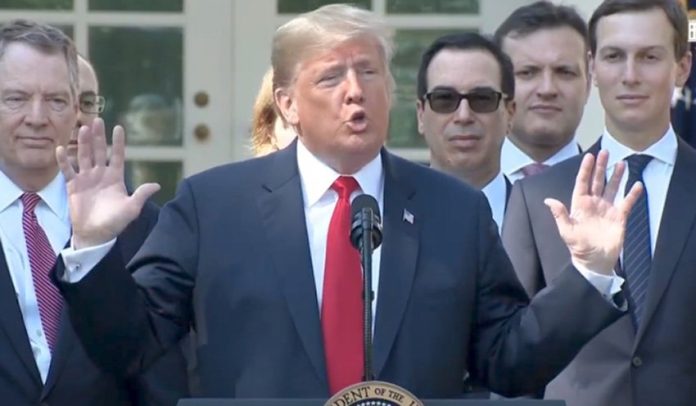Mexicans have taken United States President Donald Trump to the cleaners on NAFTA, the newly agreed-to United States-Mexico-Canada Agreement, or USMCA. That is what the president calls it instead of NAFTA 2.0, which it is.
Certainly there was some tinkering but stipulating higher North American content in imported vehicles from Mexico and Canada helps those countries more than it helps the U.S. Higher North American content, from 62.5% to 75%, is not a big deal. Canada, for example, makes far more parts than exportable automobiles.
Providing Trump-insisted-upon manufacturing caps on parts and autos themselves means little when those caps are far above current or projected sales of those items to U.S. customers. No matter what the caps are, small cars like Nissan’s Versa and Sentra will still be 100%manufactured in Mexico because of costs, costs that are too high in the U.S.
In reality it means that more foreign companies, like Michelin, will build larger factories in Mexico to supply the market in which nascent Chinese car makers now producing a handful of cars in Mexico.
We don’t know yet what the details of the new agreement are but we know that the Trump demand that a five-year “sunset” provision be used in the “new” agreement was junked by Mexico and Canada and didn’t survive the negotiations.
No savvy business person or analyst can figure exactly what Trump had in mind when he demanded a five-year “sunset” provision because no business executive in his or her right mind would ever consider such an onerous provision. Why? Because it takes more than a year to build a factory, for example, sometimes two or three.
Business planning, therefore, has to cover long periods of time; using a five-year measuring period simply does not work in business, in manufacturing especially.
BMW’s largest factory in the world is not in Germany, it is in South Carolina. Does President Trump think that the planning, construction and employee training of that factory (plus full-blast manufacturing) could be done in a short five-year period?
The “Trump sunset provision” of an agreement with Mexico and Canada never stood a chance of being approved by anyone with a brain. So goal for Mexico and to a lesser extent Canada.
Mexico can thank President Trump for more new job creation as companies will flood into Mexico to build new facilities to build air bags, alternators, car radios and computer gear, windshields, windshield wipers, bumpers, etc., etc.
Most of Mexican-made or assembled goods that are exported are exported to the United States as is the case with food products; Canada too. So, no matter what claims the president made about NAFTA being the worst agreement in history the three countries’ trade amounted to over a trillion dollars in 2017.
Moreover, Mexico alone, with 124 million people, buys more from the U.S. than all of Europe (with 500 million people) and all of China (with over a billion people).
Any comments made by President Trump about Mexico ripping off the United States were untrue. How, for example, can a country one-third the size of the U.S. buy as much from the U.S. as the U.S. does from Mexico?
In the final analysis, Mexico wins, Trump and Canada tie. Nobel Prize winner and New York Times economics commentator Paul Krugman says, “My original prediction on Trump/NAFTA was that we would end up making some minor changes to the agreement, Trump would declare victory, and we’d move on. That’s what seems to have happened.”
That, Dr. Krugman, is being charitable.
Gooooaaaallll! Mexico 1, President Trump, 0.
Raoul Lowery Contreras is the author of The Armenian Lobby & U.S. Foreign Policy,The Mexican Border: Immigration, War and a Trillion Dollars in Trade and White Anglo-Saxon Protestants (WASPs) & Mexicans (to be released November 1).
